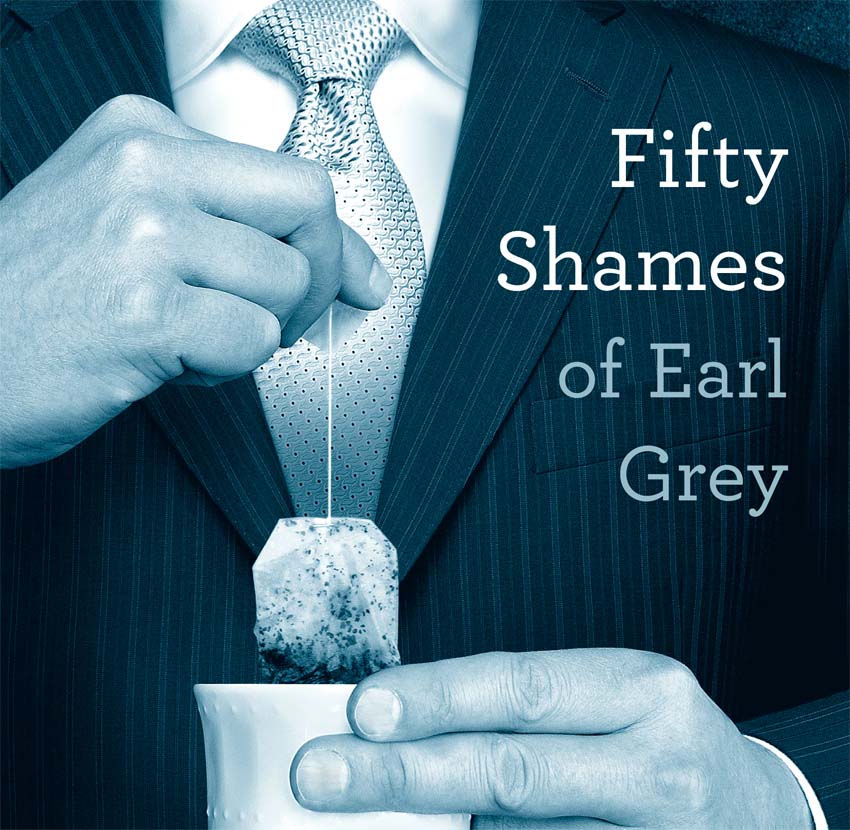Julie Delpy is most recently the writer, director, and star of 2 Days in New York.
Listen: Play in new window | Download
Condition of Mr. Segundo: Searching for a castle that doesn’t require too much physical exertion.
Guest: Julie Delpy
Subjects Discussed: Patriarchs who key cars, countesses who murder women for their virgin blood, aberrant and eccentric behavior in Delpy’s films, the advantages of flawed characters, The King of Comedy‘s Rupert Pupkin, domestic carapaces for odd people, mental institutions, emotionless people, arguing with people you live with, comic tension, loud family arguments in quiet cafes, characters who accuse others of raping children, anger issues, struggles to get quirky independent films made, why Chris Rock was cast, 2 Days vs. Before Sunrise and Before Sunset, German film financing, David Hasselhoff, Chris Rock in a straightlaced role, how romantic comedy becomes more alive when women are uncontrollable, leveling the gender playing field in narrative by offering complex women, romantic projection, thematic resonances between 2 Days in Paris and 2 Days in New York, toothbrushes that are confused with sex toys, how blue jeans woo men, how French people take their temperature, Delpy’s obsession with finding the right toothbrush sound, Stanley Kubrick, being a hands on filmmaker, color correction, the humor contained within The Countess, how to position an actor to stand appropriately on a throne of heads, Belvedere Castle, Merchant Ivory films, creating a fairy tale narrative, how boys like “feminine” aspects of fairy tales, the scarcity of women directors, how gender has affected Delpy’s reputation, being taken more seriously, the business aspects of cinema, nerds and cinema without emotion, why Hollywood is avoiding emotional directors, cold businessmen, Delpy’s indomitable work ethic, Delpy finishing The Countess while her mother was dying, and the financial repercussions of cinema.
EXCERPT FROM SHOW:
Correspondent: What of the interesting resonances between the two films [2 Days in New York and 2 Days in Paris]? The two that struck me: the thermometer becomes the toothbrush in New York. You have the thermometer joke. And then now it’s the toothbrush joke where…
Delpy: Toothbrush. Oh yeah. Like objects being put in the wrong spot. (laughs)
Correspondent: Exactly. Or blue jeans being used to woo a man. In the first film, we have mom ironing the blue jeans.
Delpy: The blue jeans.
Correspondent: In the second film, we have the blue jeans offer on air.
Delpy: The blue jeans are where?
Correspondent: The blue jeans, when Mingus is on the air. There’s that woman who offers them.
Delpy: Oh, the jeans! I see. That’s funny.
Correspondent: So I’m wondering. I’m guessing these were accidental. But I’m wondering if there were any conscious efforts on your part to mimic the resonances from the first film. To see if they would play a little differently in New York. Or older.
Delpy: Well, that’s something. For example, I think it’s something to do with — like I’ve always been amused that Americans — I mean, in France, if you take your temperature, everyone puts it in their butt. Just…I have to tell you. Just like if you’re a toddler. You just put it there.
Correspondent: It is a French thing.
Delpy: And I’ve always been having American boyfriends find this repulsive. That French people are perverts.
Correspondent: (laughs)
Delpy: Because we take our temperature in the butt. So we are perverts because of that. I always thought that was a funny idea. I mean, the thing about the toothbrush, I have the idea that, actually, they might have done really nothing with that toothbrush and that it’s all in his mind. That they might have used the toothbrush.
Correspondent: While they were having…
Delpy: Or it’s an object that wasn’t a toothbrush. But he’s convinced that they’re perverts using his toothbrush for sex toys. But I actually believe personally…
Correspondent: The toothbrush is your Pulp Fiction suitcase.
Delpy: (laughs) It is to me.
Correspondent: It could be used for naughty purposes. It could be used for rather eccentric purposes. They could be brushing their teeth as they’re doing it. We don’t know.
Delpy: Yeah. Who knows? They might have been brushing their teeth while doing it. But he’s convinced. Or they might have used another object that sounds like that toothbrush. But he’s convinced it’s his toothbrush. It’s this projection of this idea that, you know, once you have this idea that someone is perverted, you can imagine everything. And I like to use that. That is a kind of playful thing.
Correspondent: I don’t know. The sound sounded pretty similar to my ears. I’m wondering. Did you work with the sound guy to have it close?
Delpy: Actually, that was one of the hardest things to do. To find the right sound. And the banging on the wall. So it didn’t sound too trashy. To always find the right limit between really too crass and not too cute either.
Correspondent: Well, I’m wondering how you researched toothbrush sounds vs. dildo sounds. That would be a very interesting project for a sound man.
Delpy: I didn’t turn on dildos. I only turned on toothbrushes.
Correspondent: (laughs)
Delpy: I kept it to a toothbrush. But actually I did spend a lot of time listening to many different sounds of toothbrushes. And some toothbrushes, I just didn’t like the sound. So I kind of drove everyone crazy. I’m very…when I get into post-production, with all the mixing and the sound and all that stuff, I get really super duper duper duper…kind of precise on what I want. And that toothbrush, I drove everyone nuts over.
Correspondent: Well, like, how so? How precise can you get? Is there any sort of limit that you will reach before people are driven nuts or something? How anal are you here?
Delpy: No. I will work until I get what I want. I’m not like crazy, like going like a power trip. Like it’s too show that I have the power.
Correspondent: No Kubrick, 172 takes…(laughs)
Delpy: Even though they call me Stanley all the time. (laughs)
Correspondent: And not just because you grew a beard.
Delpy: Yeah, it’s because of my beard. Not because of my talent. I’ll tell you that. Because I get a little bit obsessed. Sometimes in details and stuff like that. But then when I have what I want, I’m fine. Then I’m done. Boom. And then I never talk about it again.
Correspondent: Well, like, how many takes did you do? Just to deflate the Stanley rumors here.
Delpy: Well, I ended up recording the toothbrush myself. Because I didn’t like any of the sounds. So I ended up taking a mike and going to record my toothbrush and the toothbrush I wanted to use in the film.
Correspondent: Are you hands on like that for cinematography? Or for other matters?
Delpy: Cinematography, no. Because I am not a very good — I don’t have the best visual ideas, you know? I’m not hands on cinematography. I’m very hands on sound. Music. Sound effects. Everything that has to do with sound, I’m very good. You know, I’m very obsessed also when we do the period of color correction. I get very — if I don’t get what I want, I will not stop.
Correspondent: What about placement of actors?
Delpy: Which is normal. I think it’s normal. I mean, if you’re a filmmaker, you want to get — it’s so much work to write. It’s so much work to shoot. And then you edit for three months and you work like a maniac. And then you end up in post-production. And you don’t want to suddenly have skin tones that are wrong. I mean, you can very quickly — now there’s such a scale of things you can do. It’s so large. You can go from a skin that looks sort of creamy to a skin that looks all greenish. I mean, you can do so much that you have to be really careful in color correction nowadays.
Correspondent: What about positioning an actor? Like, I think of the image in The Countess of the guy standing on top of the heads. I mean, how particular are you on something like that?
Delpy: Oh that, I’m very particular.
Correspondent: The angle of the head. Is the head just right at that particular angle? I’m just trying to get a sense of how precise you are really with these things.
Delpy: Yeah. I get very precise in scenes like that. Because, to me, I wanted it to look like a painting. Like a lot of 17th century painting I’ve looked at, based for this film. Like a lot and lot of Nordic painters. So I was really inspired by that. And I wanted it to look like that. Like something almost ridiculous, but kind of funny. I mean, the film, The Countess is not devoid of humor. I see the film as something a little bit funny at times. So it’s meant to be that way. Like even the craziness of wanting to stay young forever. I mean, she’s obviously such a pathetic character. Which makes me laugh. She makes me laugh actually. And so anyway, even this guy is kind of crazy. I mean, he’s sitting on a throne of beheaded Turks. So it’s kind of funny. If you’re dark. (laughs)
Correspondent: I thought a lot of it was funny, personally. But I’m a sick human being. But Belvedere Castle…
Delpy: But it’s meant to be funny.
Correspondent: Yes. Belvedere Castle, I wanted to ask you about this. You shot the end of 2 Days in New York at Belvedere Castle. And what happened with me when I saw the film — and this may be a terribly wonkish and pedantic question, but I feel the need to ask it nonetheless. I immediately thought, “Oh! The Bostonians. Merchant Ivory.” And the reason that I thought about that was because in 2 Days in Paris, you have this early moment where the American tourists come in and they have the red Da Vinci Code, which is almost serving as the red Baedeker tour guides that you see in A Room with a View. And so…
Delpy: Oh my god. That’s complicated.
Correspondent: And they are tourists, much in that mode, going through a city. And, of course, they come from Venice by train. So I think to myself, “Oh, there was maybe a Merchant Ivory nod there.” But I’m wondering, based off of these two things, whether emulating that sort of Merchant Ivory look and subverting it with wild behavior or astonishing developments was ever an interest of yours. And also: why you choose Belevedere Castle?
Delpy: Well, you know, I didn’t really think at all of Merchant Ivory. You looked into it like…oh my god. That’s pretty..
Correspondent: This is a problem of mine. I apologize. (laughs)
Delpy: That’s really cool. That’s really cool to read so much into something. No, I basically picked the Belvedere Castle because I wanted something high that made sense, that it was dangerous but not Empire State Building dangerous. Because Empire State Building — anyway, you can’t jump off the Empire State Building. Because it’s all blocked out. So it had to be realistic. And the Belvedere Castle is quite dangerous. Actually, if you jump, you can kill yourself. But I wanted it to be almost like a fairy tale. The film is a little bit like a fairy tale. It’s told to a child really. Because it’s told with these puppets. So I wanted this end to be in a castle. Like a fairy tale. And the princess, which is me, is saved by the prince, which is Chris Rock. But obviously the film is so not a fairy tale in its tone and everything. But I wanted it to be like a fairy tale. It ends in a castle like a fairy tale.
The Bat Segundo Show #475: Julie Delpy (Download MP3)





